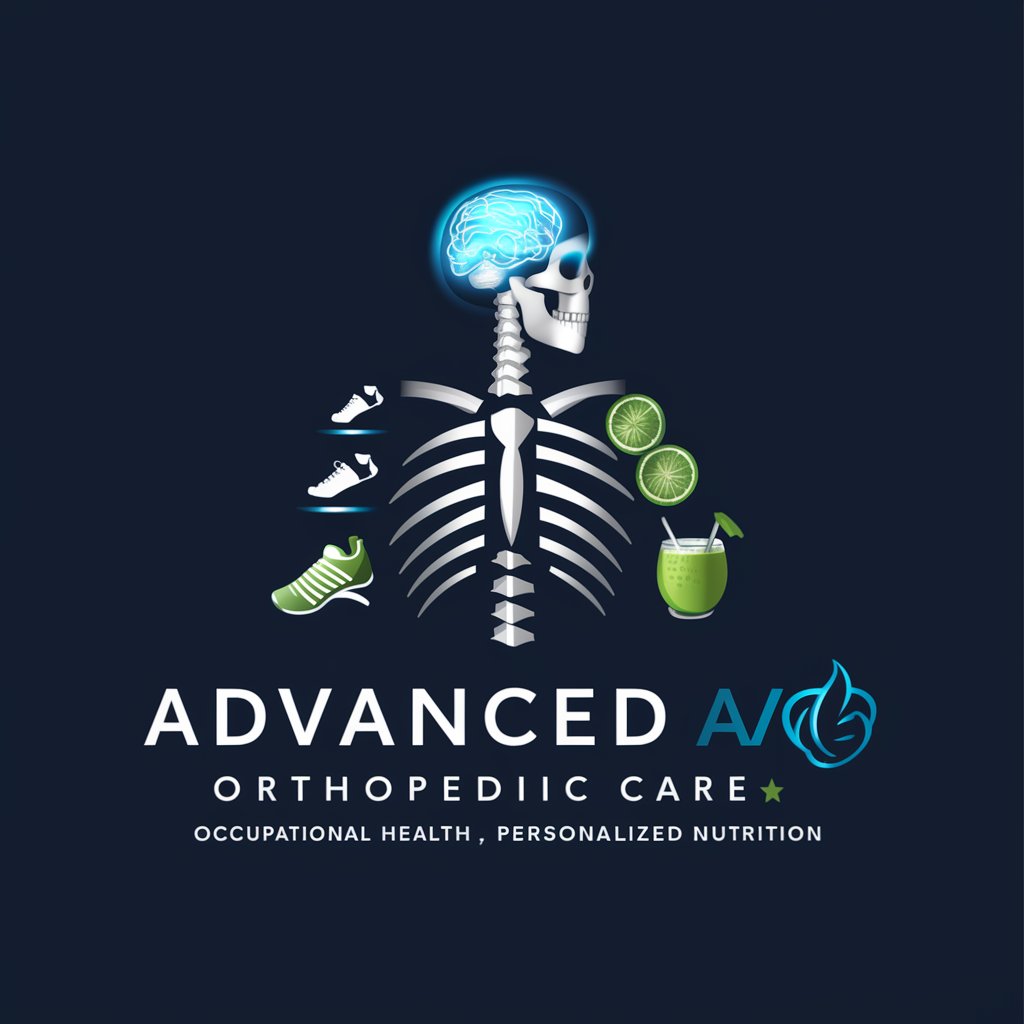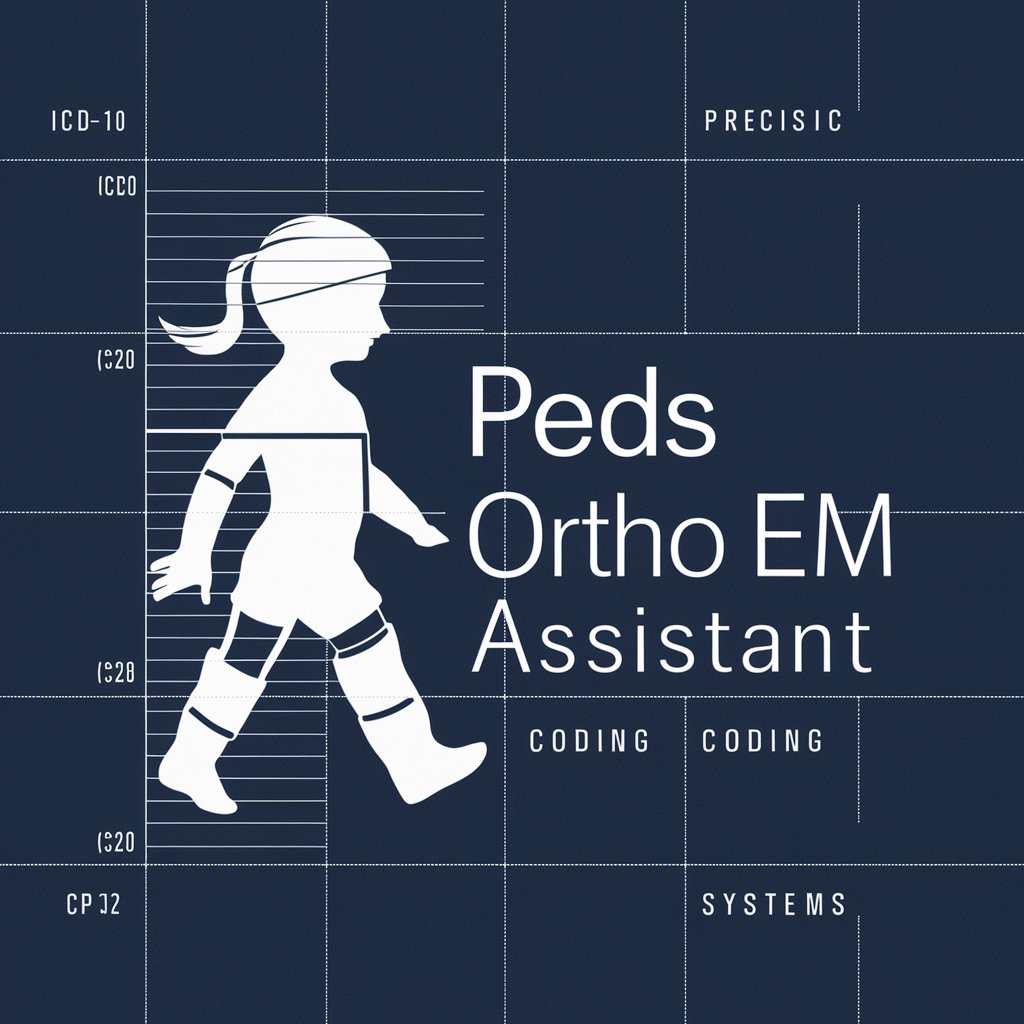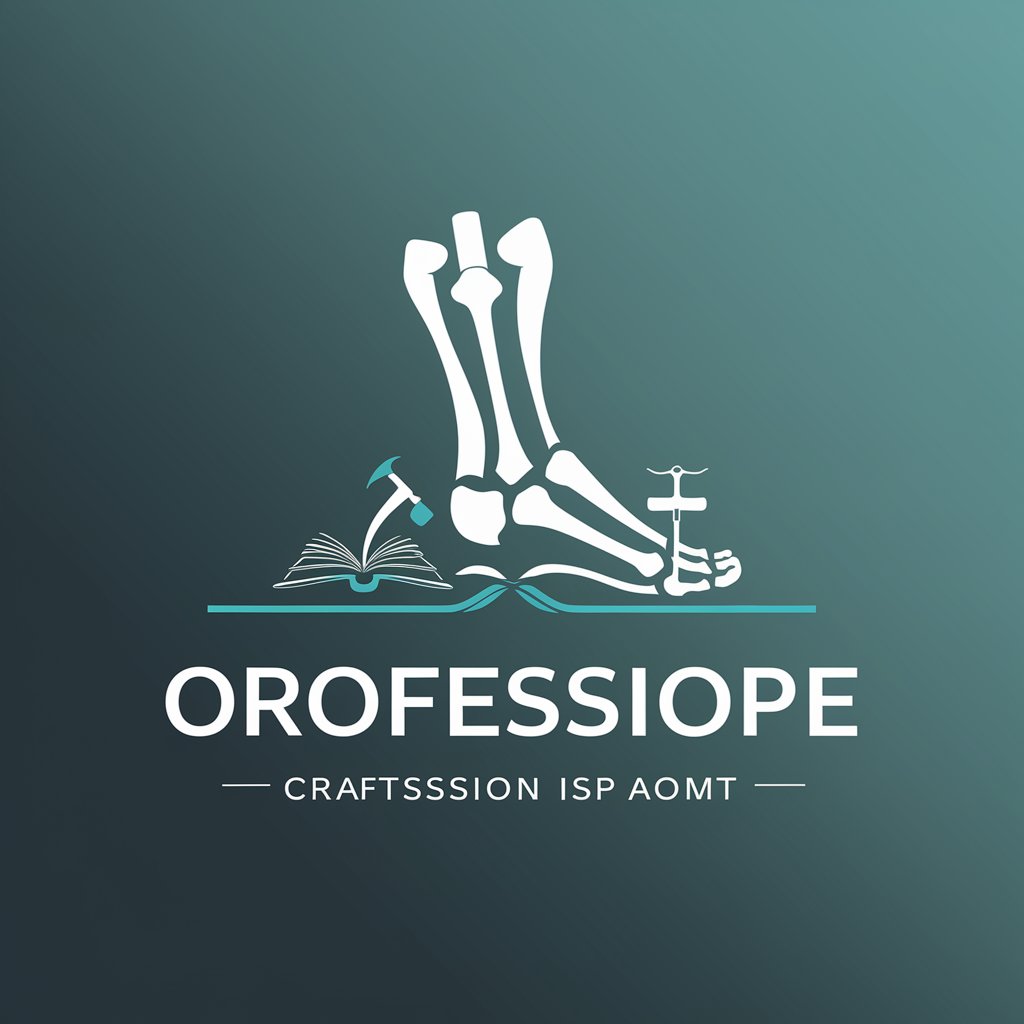
Orthopedic Assistant - Orthopedic Expertise Anytime

Hi! How can I assist with your orthopedic queries today?
AI-powered orthopedic insights at your fingertips.
What's the latest treatment for ACL injuries?
Can you list the indications for a knee replacement?
How do I differentiate between rotator cuff tear and bursitis?
What are the post-op care guidelines for spinal fusion?
Get Embed Code
Orthopedic Assistant: An Overview
Orthopedic Assistant is a specialized digital tool designed to support orthopedic healthcare professionals, particularly in emergency settings. It provides evidence-based medical advice, focusing on orthopedic conditions and treatments. Its core objective is to assist in patient assessment, diagnosis, and decision-making by offering up-to-date, research-backed information. For instance, when faced with a patient presenting with acute knee pain after a fall, Orthopedic Assistant can guide through differential diagnoses—such as ligament injury, fracture, or meniscal tear—suggesting appropriate diagnostic tests (e.g., MRI, X-ray) and initial management steps. Powered by ChatGPT-4o。

Core Functions of Orthopedic Assistant
Differential Diagnosis Assistance
Example
A patient presents with shoulder pain following a sports injury. Orthopedic Assistant suggests considering rotator cuff tear, AC joint injury, or a clavicle fracture.
Scenario
This function aids in narrowing down possible conditions based on symptoms and history, guiding through further investigations required.
Evidence-Based Treatment Recommendations
Example
For a diagnosed case of Achilles tendinitis, it recommends RICE protocol, eccentric exercises, and when to consider pharmacological interventions or surgery.
Scenario
It helps in selecting the most effective treatment plans based on current guidelines and research, tailored to patient-specific factors.
Patient Management Tips
Example
In managing a case of hip fracture in an elderly patient, Orthopedic Assistant advises on pre-operative optimization, surgical approaches, and post-operative care, including rehabilitation.
Scenario
This ensures comprehensive care throughout the patient's journey, from initial assessment to recovery, based on best practices.
Target User Groups for Orthopedic Assistant
Emergency Department Physicians
These professionals often encounter a wide range of acute injuries and require quick, accurate orthopedic decision-making. Orthopedic Assistant offers them instant access to specialized knowledge, enhancing patient care.
Orthopedic Surgeons
Surgeons benefit from a comprehensive tool that supports the latest treatment protocols and surgical techniques, facilitating optimal patient outcomes.
General Practitioners
GPs who frequently encounter patients with musculoskeletal complaints can use Orthopedic Assistant to refine their diagnoses and management plans, ensuring appropriate referrals and treatments.
Physiotherapists
These professionals can leverage the tool to understand the latest evidence in rehabilitation techniques, helping to tailor therapy programs to individual patient needs effectively.

How to Use Orthopedic Assistant
1
Start with a free trial by visiting yeschat.ai, accessible without the need for logging in or subscribing to ChatGPT Plus.
2
Identify your orthopedic query or concern, ensuring you have all relevant patient information at hand for a detailed consultation.
3
Utilize the interface to type your query, being as specific as possible to ensure the most accurate and comprehensive advice.
4
Review the provided information and follow any recommended steps for patient care, diagnosis, or treatment.
5
Use the feedback function to refine future advice, helping the AI learn and provide more tailored assistance over time.
Try other advanced and practical GPTs
Expert Botanist Plant Doctor Botany Wizard
Empowering green thumbs with AI-driven botanical wisdom.

Pollinations AI
Unleash creativity with AI-powered prompts

AquaSocio Expert
Empowering research with AI-driven insights on water and socioeconomic topics.

College Locator India
Discover Colleges Across India with AI

Murales Montréal
Explore Montreal's Art, AI-Powered

Chicken Farming Expert
AI-powered Chicken Farming Guidance

Recovery Guide
AI-powered Recovery and Rehabilitation Guide

Orthopedic Expert
AI-Powered Orthopedic Health Assistant

Shoes Elegant Footwear Sneakers Shopping Guide
AI-powered Sneaker Concierge

Real Estate Redesign
Transform Your Property with AI

Retro VHS Artist
Reviving Nostalgia with AI-Driven Art

Project navigator
Deconstructing complexity with AI power

Orthopedic Assistant FAQs
What types of orthopedic queries can Orthopedic Assistant handle?
Orthopedic Assistant is equipped to handle a wide range of queries, from differential diagnoses and treatment recommendations to patient management advice and the latest in orthopedic research findings.
Can Orthopedic Assistant help with emergency orthopedic situations?
Yes, it provides immediate, evidence-based advice for emergency orthopedic situations, aiding in quick decision-making and patient care planning.
How accurate is the information provided by Orthopedic Assistant?
The tool is designed to provide current, research-based information, but it's important to combine its advice with professional judgment and patient-specific considerations.
Can Orthopedic Assistant provide images or diagrams to help explain conditions?
While it primarily offers text-based advice, suggestions for further reading or resources where visual aids can be found are often included.
Is Orthopedic Assistant useful for patient education?
Absolutely. It can offer explanations and information suitable for patient education, helping to clarify conditions, treatments, and procedures.





